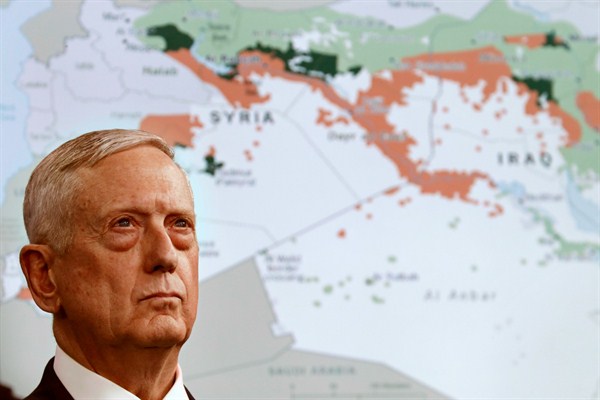Iraq has the potential to help bridge current regional divides in the Arab world and establish a functional model of equilibrium, which is why it should remain central to U.S. Middle East policy.
As it approaches parliamentary elections next month, Iraq is not poised for either a major political transformation or massive security improvements. Instead, as a U.S. official who has worked on Iraq for many years has often noted to me, “Iraq is like a cancer patient, but a patient that we have some idea how to treat.” Despite that prognosis, the country should still be at the center of any U.S. Middle East policy to stabilize the Arab world. With Iraq emerging from a period of acute crisis after the Islamic State’s territorial advances were reversed, at great cost, the United States has a significant opportunity to assist in ameliorating its chronic ills.
The effects of America’s ill-fated and legally dubious 2003 invasion and occupation of Iraq point to the potential benefits of a different approach, one that is, instead, consistent, realistic and modest. Consider everything that has happened in Iraq, and its impact on U.S. Middle East policy. Without in any way suggesting nostalgia for the autocratic and repressive order imposed by Saddam Hussein, the overthrow of the Baathist regime ensnared the United States in a costly military endeavor that eroded its strategic and moral position; produced the conditions for the deaths of hundreds of thousands of Iraqis; created a huge opening for the projection of Iranian power; revitalized and provided strategic depth to transnational jihadism; cemented Iraqi isolation from much of the Arab world; and sharpened sectarian polarization in the Middle East and beyond.

